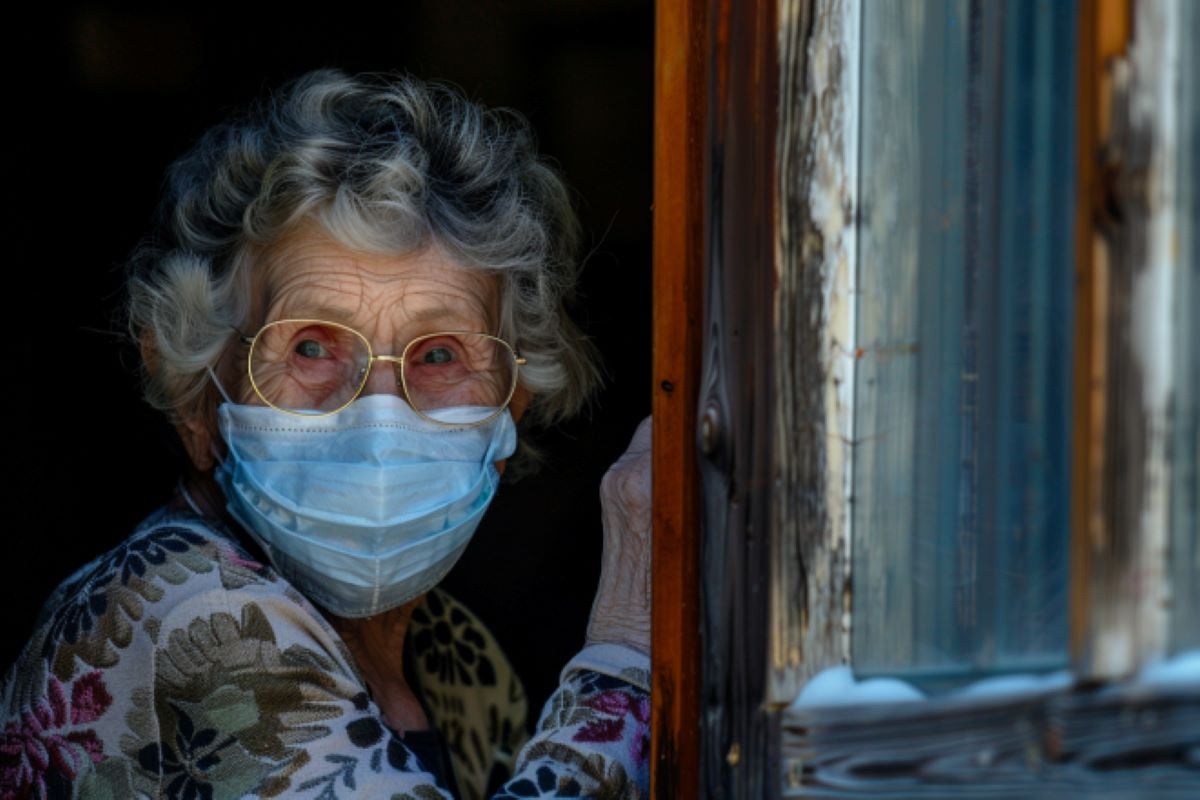Fitness
Pandemic Reveals Unexpected Resilience in Isolated Seniors – Neuroscience News

Summary: Socially connected older adults in England experienced a sharper decline in quality of life and increased loneliness during the pandemic compared to their isolated peers.
Researchers analyzed data from 4,636 individuals and found that isolated seniors faced fewer disruptions in their routines, offering them some protection against negative pandemic effects. However, socially isolated adults saw a greater decline in physical activity and financial worries.
These findings underscore the complex impact of social connections during crises.
Key Facts:
- The study included 4,636 participants with an average age of 67.
- Socially isolated seniors experienced less decline in life satisfaction during the pandemic.
- Isolated adults had a greater decrease in physical activity and continued to worry about future finances.
Source: UCL
Socially connected older people had a sharper drop in their quality of life and life satisfaction and a greater increase in loneliness during the pandemic than their more isolated counterparts, according to a new study by UCL researchers.
The study, published in Proceedings of the National Academy of Sciences (PNAS), looked at survey responses from 4,636 people in England (with an average age of 67) between 2018 and the end of 2020.
Co-author Professor Andrew Steptoe, of the UCL Department of Behavioural Science & Health, said: “It might be expected that older people who were already socially isolated would be particularly vulnerable to the disruptions and restrictions of the pandemic.
“In fact, our study suggests the opposite – that isolated older people were somewhat protected from the negative aspects of pandemic restriction, perhaps because they had less to lose in terms of social connections.”
The researchers analysed data from the English Longitudinal Study of Ageing, a nationally representative population study in England. Participants were interviewed in 2018-19 and twice in 2020 – in June/July and November/December.
Just under a third (29%) of respondents were classed as socially isolated, depending on frequency of contact with friends and family, whether they lived with a partner and whether they participated in clubs, organisations or societies.
Prior to the pandemic, these socially isolated older adults had worse quality of life and life satisfaction and greater loneliness, but during 2020 their decline in these areas was less than their more socially connected peers.
Life satisfaction declined about half as much, leading to isolated older adults having similar satisfaction with life during the pandemic as adults who were more socially connected.
Lead author Claryn Kung, a senior researcher at the UCL Department of Behavioural Science & Health, said: “It is likely that socially connected older men and women experienced a greater disruption in their habitual routines and rhythms.
“In contrast, more isolated individuals may have experienced relatively fewer changes in their daily lives, with their usual routines and arrangements possibly being less prone to disruptions by restrictions during the pandemic.
“Our findings highlight the need to care for isolated older adults, but also to be attentive in times of crises to the impact of major disruptions in social activity.”
In contrast to these effects, the study found that isolated adults experienced a greater decline in their levels of physical activity, widening the gap between the two groups, and remained more likely to be worried about their future finances. They did not on average change their likelihood of internet use, whereas more socially connected peers used the internet more.
Funding: The study received support from the UK’s National Institute for Health and Social Care Research (NIHR) and the Economic and Social Research Council (ESRC) as well as the US National Institute on Aging.
About this social isolation research news
Author: Mark Greaves
Source: UCL
Contact: Mark Greaves – UCL
Image: The image is credited to Neuroscience News
Original Research: Open access.
“Changes in well-being among socially isolated older people during the COVID-19 pandemic: An outcome-wide analysis” by Claryn Kung et al. PNAS
Abstract
Changes in well-being among socially isolated older people during the COVID-19 pandemic: An outcome-wide analysis
Older adults experienced major changes during the COVID-19 pandemic and ensuing restrictions, and it might be expected that those who were already socially isolated before the pandemic were particularly vulnerable.
We apply an outcome-wide longitudinal design on 4,636 participants (mean age 66.8 y) from the English Longitudinal Study of Ageing, observed in 2018/19 and early (June/July 2020) and later (November/December 2020) in the pandemic. Social isolation is defined using an index including marital status, social contact, and social participation in 2018/19.
Using mixed models, we compare changes in well-being, health, health behaviors, financial well-being, and Internet use, between isolated and nonisolated participants.
From before to during the pandemic, isolated participants (29%) experienced smaller declines in life satisfaction and quality of life and a smaller increase in loneliness.
They showed greater declines in smoking and physical activity and were more likely to remain worried about their future financial situation. They also did not change in their likelihood of regular Internet use, contrasting with nonisolated participants who increased in this regard.
The groups followed a similar trend for general health and sleep quality (no change), depression and anxiety (increase), and expectations of future financial difficulties (decrease). Although isolated older adults generally show poorer outcomes than their socially connected counterparts, they were somewhat protected during the pandemic on some fronts.
Our findings highlight the need to continually care for isolated older adults but also to be attentive in times of unexpected crises to those experiencing extreme changes related to necessary policy responses.










